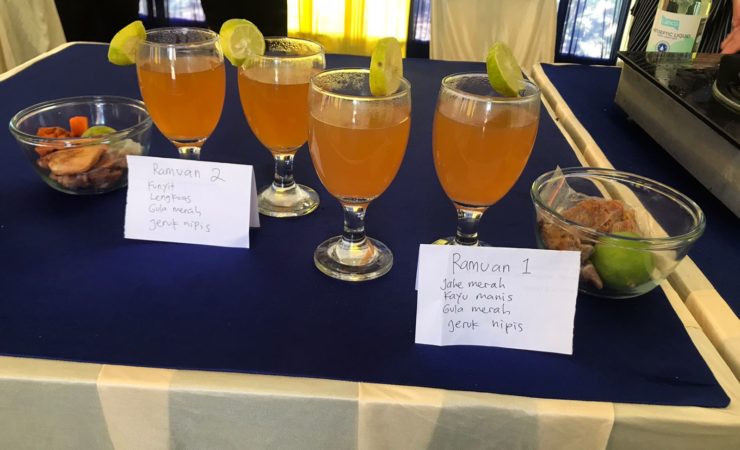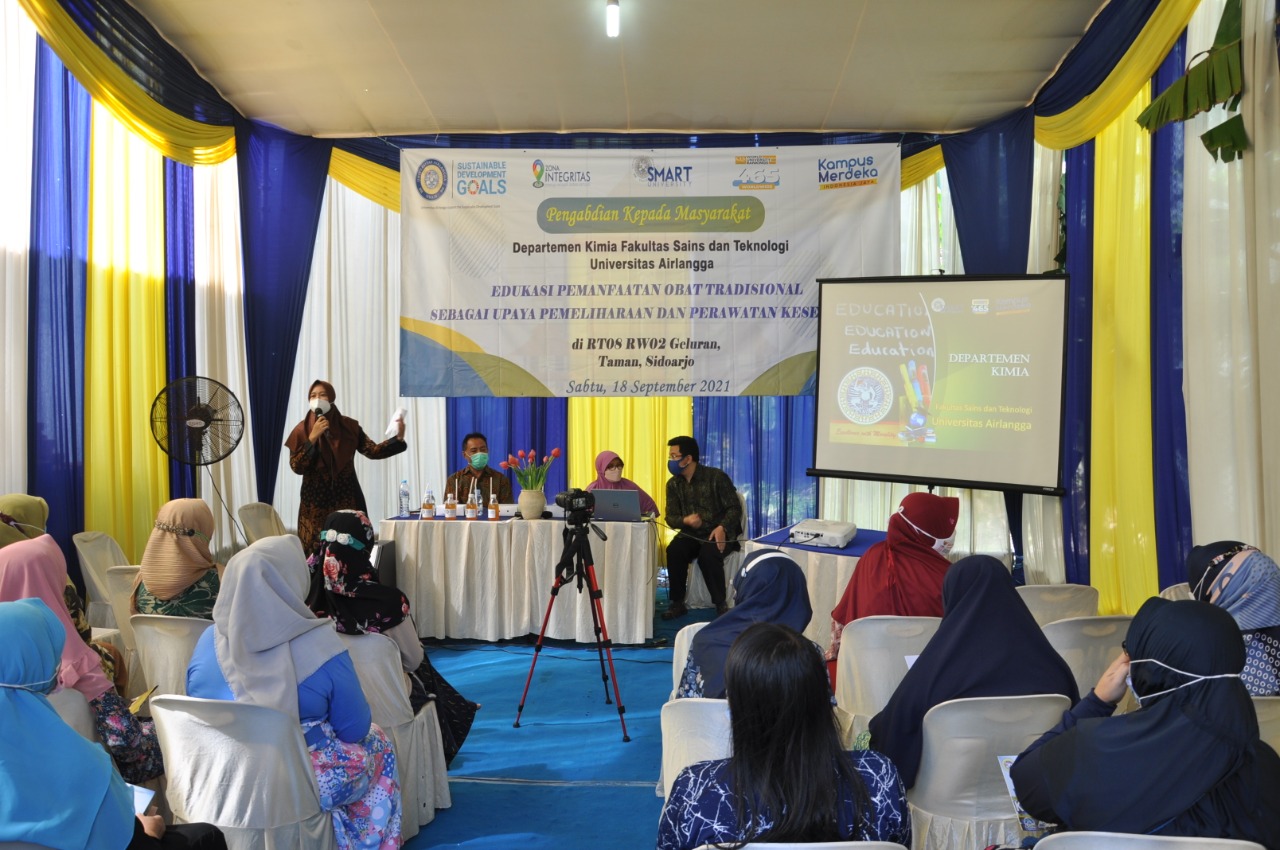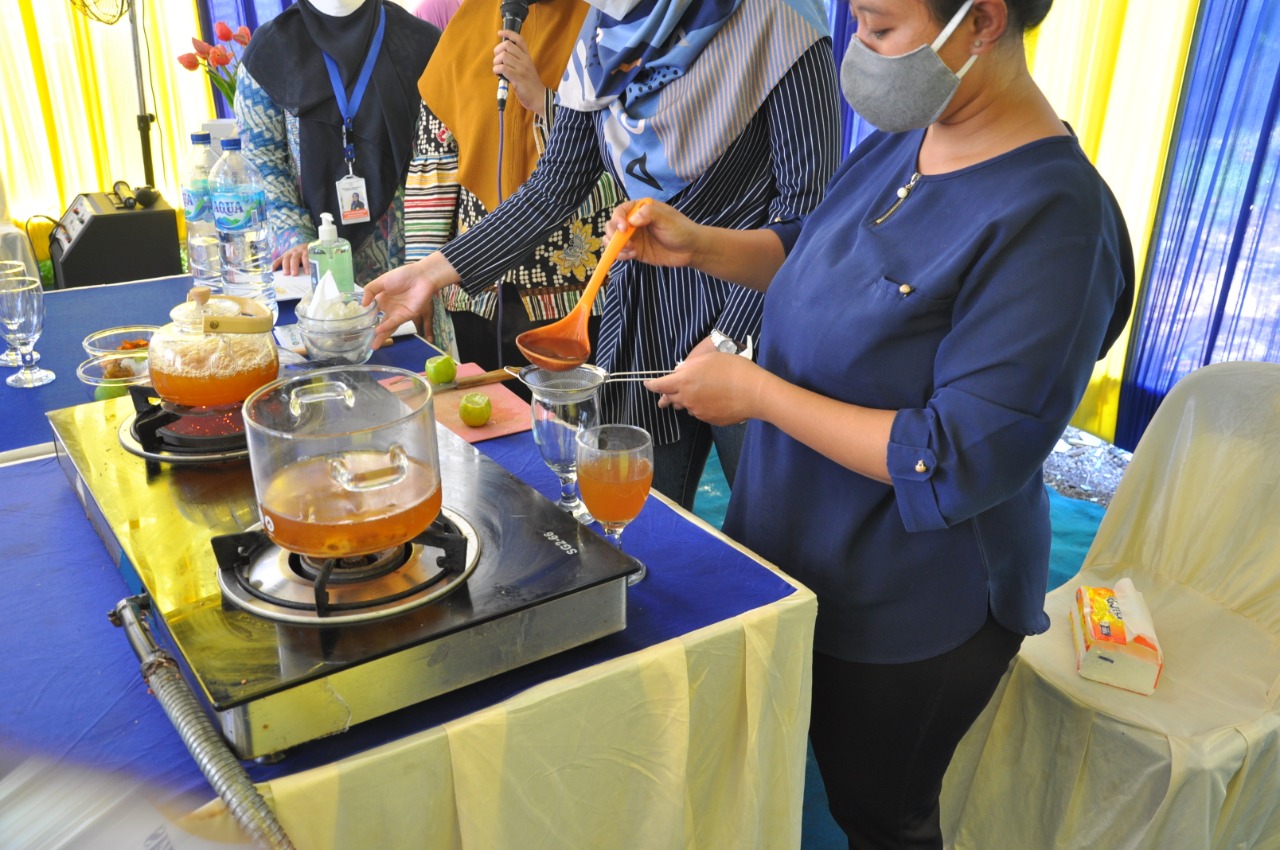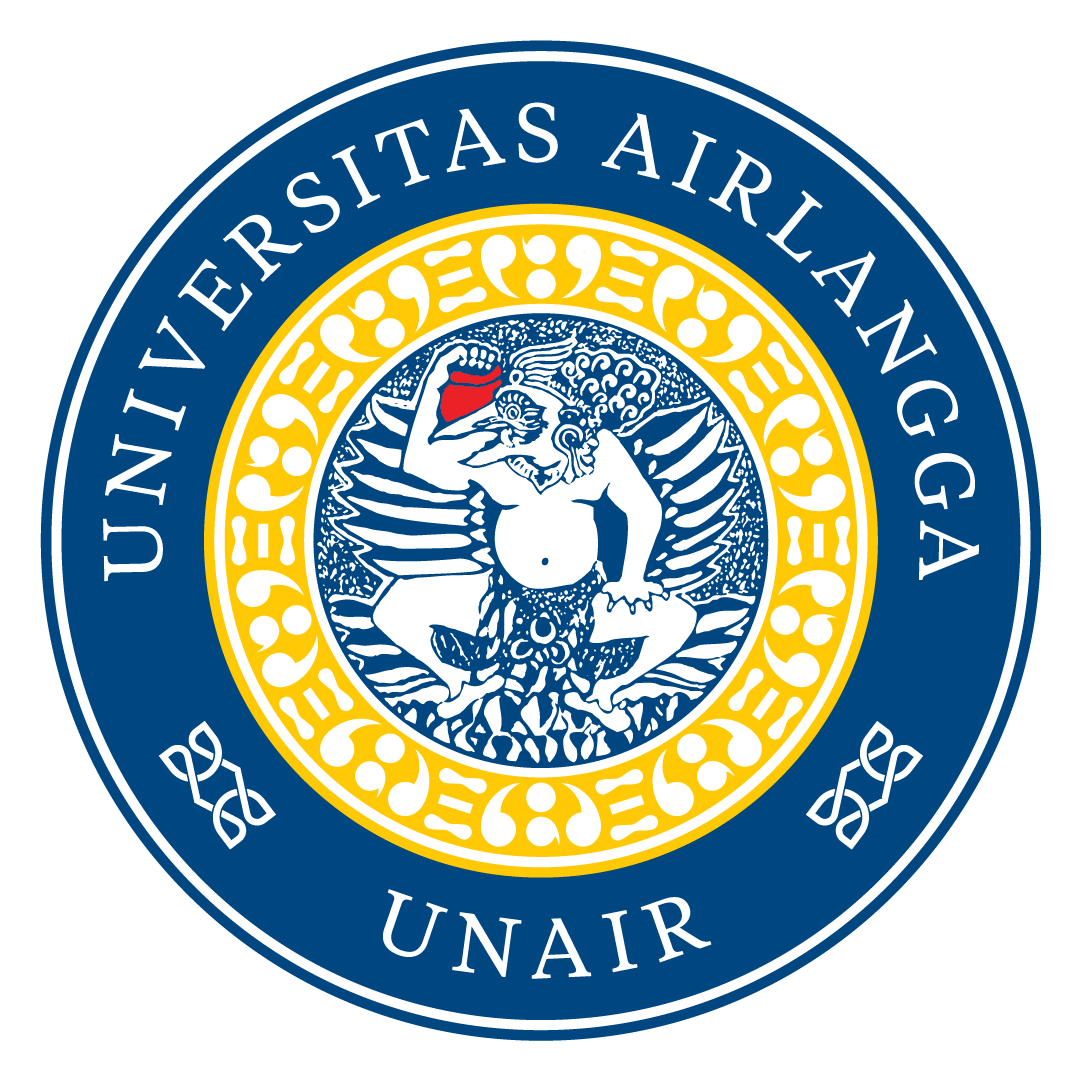UNAIR Chemistry Lecturer Conducts Community Service on Education on the Utilization of Traditional Medicines as Health Maintenance

The COVID-19 pandemic has had significant global impacts. The increasing death toll demands that communities stay at home and adhere to health protocols such as wearing masks, maintaining distance, and washing hands with soap (known as the 3M approach). All efforts related to preventive measures, including the consumption of nutritious food and beverages, are necessary to maintain immunity. Health maintenance, disease prevention, and healthcare during public emergencies or national disasters like the current situation can be supported by utilizing herbal plants as traditional medicines.

One of the pillars of the Higher Education Tri Dharma, community service, has been successfully realized by the Chemistry lecturers at Universitas Airlangga. Health-focused socialization activities need to be enhanced, especially amidst the ongoing COVID-19 pandemic. These activities involve providing education about various traditional medicines categorized by the National Agency of Drug and Food Control (BPOM), their benefits, and beneficial chemical contents. They also include imparting accurate information and understanding regarding traditional medicines and their utilization. The target audience for this initiative was the PKK (Family Welfare Empowerment) group in RT 08 RW 02, Geluran Village, Taman District, Sidoarjo Regency, recognized as a vital organizational unit in community welfare development on Saturday (18/09).

The event was conducted face-to-face while adhering to health protocols. It was structured as a seminar and practical session on herbal medicine, delivered directly by Dr. Mulyadi Tanjung, M.Si., and Dr. Sri Sumarsih, Dra., M.Si. The enthusiasm of the participants was evident from the numerous questions and sharing sessions. One of the questions raised pertained to the ingredients used in the preparation of herbal medicine. Several participants shared success stories about using herbal drinks to address health concerns.
Participants were allowed to directly practice the steps in traditional medicine or herbal preparation as outlined in the provided handbook. Each participant also received bottled herbal medicine for immediate consumption. The activity proceeded smoothly and received positive feedback from participants, who expressed hope for similar future events.
Author: Aulinnashru Ilma Achsania
Editor: Qurrota A’yuni

